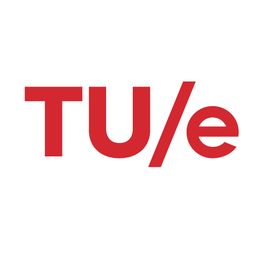
TU Eindhoven
100+
events

events

Thursday, Sep 19 2024 · 11:00 AM · 3:00 PM
De Zaale 20, 5612 AP Eindhoven, Nederland
Fusion in the Netherlands by 2052? Time to initiate a societal debate! Date: Thursday 19 September 2024 Location: TU/e campus, Differ building, De Zaal 20 Eindhoven Organized by: Eindhoven Institute for Renewable Energy Systems (EIRES) Introduction: Although it may seem odd and far-fetched, the developments in nuclear fusion require us to discuss, society-wide, how we deal with this technology. Governments (US, China, Germany, UK) are stepping up in their ambitions and startups worldwide attracted over 7bn’s of funding. How promising is fusion power now? How should we think about large projects and the future energy system? What socio-economical aspects come into play? These are aspects we want to discuss interactively, with speakers and audience. Program: 12h30 - 13h00: Walk-in with coffee and tea 13h00 - 13h15: Word of welcome and introduction (EIRES) 13h15 - 13h40: What is nuclear fusion and how is the fusion world developing now? (Prof. Roger Jaspers, Eindhoven University of Technology) 13h40 - 14h05: Systems Engineering for Nuclear Fusion, from components to reactors and beyond (Dr. Torben Beernaert, DIFFER) 14h05 - 14h30: Modelling of the electricity grid and the potential role for nuclear fusion (Emiel van Druten, Eindhoven University of Technology) 14h30 - 14h50: Break 14h50 - 15h15: Governing nuclear technologies: lessons from radioactive waste management (Marleen Schuijer, MSc Affiliation: Rathenau Instituut) 15h15 - 15h40: Confusion on nuclear fusion (Pallas Agterberg, Challenge Office at Alliander) 15h40 - 16h35: Panel session, interactive discussion 16h35 - 17h30: Drinks Abstracts: ROGER JASPERS | Chair of the research group Nuclear Fusion - department of Applied Physics of Eindhoven University of Technology Do we know enough to build Fusion reactors? The landscape of nuclear fusion research has evolved significantly and is entering a new phase: Notably, we are witnessing the construction of advanced fusion devices geared towards achieving power multiplication within the next decade. The fusion arena has recently seen a surge in privately-funded initiatives, attracting substantial investments amounting to billions of dollars. Key technological breakthroughs, particularly the development of High Tc superconducting coils, will have a significant impact. To appreciate this progress, this presentation will provide the necessary physics background for understanding fusion reactors and will explore the ongoing challenges that need to be addressed to make nuclear fusion a viable energy source. TORBEN BEERNAERT | PHD Student DIFFER Systems Engineering for Nuclear Fusion, from components to reactors and beyond Nuclear fusion is not a single challenge. Rather, it is a complex problem with many aspects that need to be consolidated, ranging from physics and technology to socio-economics and politics. Planning and executing a long-term fusion program requires a wide, integrative view on all these aspects. EMIEL VAN DRUTEN | PHD Student Eindhoven University of Technology Modelling of the electricity grid and the potential role for nuclear fusion Emiel van Druten is a PhD Student at Eindhoven University of Technology on the topic: Energy system optimization & trade-offs. He has collaborations with Tennet and the NEON project. He will elaborate on what the scenario studies could mean for the farther future and what are main factors for possible future energy technologies. MARLEEN SCHUIJER | Researcher at the Rathenau Instituut Governing nuclear technologies: lessons from radioactive waste management What happens when you introduce new nuclear technologies into society? And what type of governance is needed to handle the novelty, long-term character, and potential controversy? In this talk, we draw lessons from experiences with the long-term management of radioactive waste. In virtually all European countries, radioactive waste programs have faced considerable societal opposition. In response to these protests, countries have reshaped the way they organize decision-making, participation, knowledge, and finances. We will discuss these new governing practices, for they may prove valuable to future nuclear fusion programs. Pallas Agterberg | Challenge Office at Alliander Confusion on nuclear fusion Will nuclear fusion part of the energy transition? The energy system is changing rapidly, not only because of climate policy, but also thrived by technological developments and geopolitical issues. How does nuclear fusion fits in the megatrends behind these change? About EnergyDays: EnergyDays is organized every quarter of the year and are open for anyone interested in the latest developments in societal energy issues. EnergyDays focusses on a specific aspect of the present energy and climate discussion. Different keynote speakers from academia and industry will present their views, solutions and outlooks on the topic. The motto of EnergyDays is to stimulate the audience to broaden their vision on energy and climate.